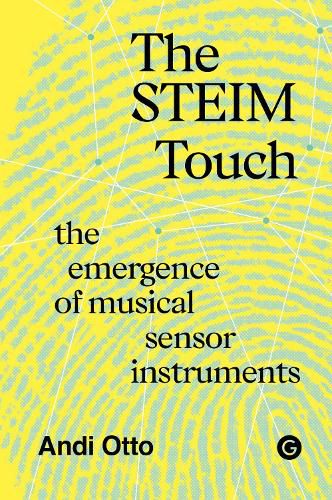Readings Newsletter
Become a Readings Member to make your shopping experience even easier.
Sign in or sign up for free!
You’re not far away from qualifying for FREE standard shipping within Australia
You’ve qualified for FREE standard shipping within Australia
The cart is loading…






The story of STEIM and the first sensor instruments in digital music.
The story of STEIM and the first sensor instruments in digital music.
STEIM, the Studio for Electro-Instrumental Music in Amsterdam, was different from other music studios of the 20th century. Its explicit dedication to the live performance of electronic music made it a hub for artists seeking individual ways to bring music technology to the stage. In its 52 years of existence, STEIM has supported and inspired around 1500 artists and engineers to develop individual ways of touching electronic sound. Born in 1969 out of Amsterdam's vibrant and politically charged music scene, STEIM finally closed its doors in 2021 due to lack of funding. A key figure in the history of the studio was the former director Michel Waisvisz (1949-2008). His instrument The Hands was the first gestural musical interface in digital music- it used sensors to generate data from hand movement. In 1984, it was ahead of its time- MIDI had just been introduced as a standard protocol for musical control data, and The Hands applied it in a surprisingly physical way. Waisvisz's work together with the STEIM engineers inspired a whole generation of sound artists to create experimental musical interfaces at STEIM towards the end of the 20th century. These early gestural interfaces for playing electronic music are the focus of this book. Dutch Touch captures STEIM's particular physical approach to digital media, its history, context and legacy. This first documentation of the studio's archive and aesthetics fills an essential gap. Not only as a historical account, but also as a blueprint for today's challenges concerning embodiment and performance in artificial, algorithmic musical environments.
$9.00 standard shipping within Australia
FREE standard shipping within Australia for orders over $100.00
Express & International shipping calculated at checkout
Stock availability can be subject to change without notice. We recommend calling the shop or contacting our online team to check availability of low stock items. Please see our Shopping Online page for more details.
The story of STEIM and the first sensor instruments in digital music.
The story of STEIM and the first sensor instruments in digital music.
STEIM, the Studio for Electro-Instrumental Music in Amsterdam, was different from other music studios of the 20th century. Its explicit dedication to the live performance of electronic music made it a hub for artists seeking individual ways to bring music technology to the stage. In its 52 years of existence, STEIM has supported and inspired around 1500 artists and engineers to develop individual ways of touching electronic sound. Born in 1969 out of Amsterdam's vibrant and politically charged music scene, STEIM finally closed its doors in 2021 due to lack of funding. A key figure in the history of the studio was the former director Michel Waisvisz (1949-2008). His instrument The Hands was the first gestural musical interface in digital music- it used sensors to generate data from hand movement. In 1984, it was ahead of its time- MIDI had just been introduced as a standard protocol for musical control data, and The Hands applied it in a surprisingly physical way. Waisvisz's work together with the STEIM engineers inspired a whole generation of sound artists to create experimental musical interfaces at STEIM towards the end of the 20th century. These early gestural interfaces for playing electronic music are the focus of this book. Dutch Touch captures STEIM's particular physical approach to digital media, its history, context and legacy. This first documentation of the studio's archive and aesthetics fills an essential gap. Not only as a historical account, but also as a blueprint for today's challenges concerning embodiment and performance in artificial, algorithmic musical environments.